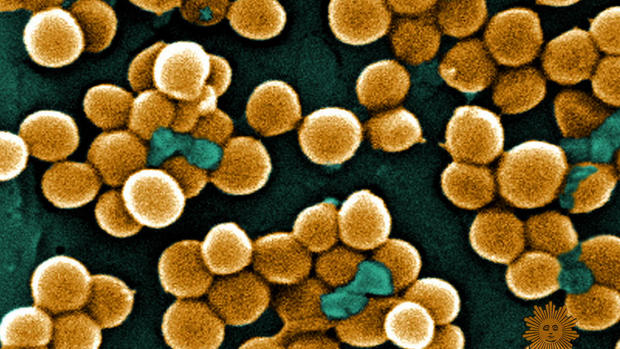Antibiotics shortages could put patients at risk from superbugs
Shortages of antibiotics, including those used to treat drug-resistant infections, may be putting patients at risk for sickness and death, according to a new report.
Between 2001 and 2013, there were shortages of 148 antibiotics. And the shortages started getting worse in 2007, researchers found.
"Many of the drug shortages were among the only drugs to treat a particular condition, drugs to treat antibiotic-resistant bacteria and drugs used to treat children," said lead researcher Dr. Larissa May, an associate professor of emergency medicine at George Washington University in Washington, D.C.
"When these drugs are not available, patients may not get the best care, or even die," she said. "If something isn't done, there may be big impacts on health care."
In the study, nearly half the shortages were for antibiotics needed to treat severe infections, including Clostridium difficile, carbapenem-resistant Enterobacteriaceae (CRE), methicillin-resistant Staphylococcus aureus (MRSA) and Pseudomonas aeruginosa, among others.
C. difficile can be picked up in hospitals and doctors' offices, and in 2011 the bacteria was to blame for 500,000 infections and 29,000 deaths. MRSA is an antibiotic-resistant bacteria that infects some 78,000 people a year and can also be deadly, according to the U.S. Centers for Disease Control and Prevention.
Many of the shortages were of broad-spectrum antibiotics -- injectable drugs for which there were no alternative manufacturers. Moreover, shortages were common among antibiotics used to treat children. Among these drugs, there were few alternatives doctors could turn to, the researchers found.
"Gold-standard" therapies, such as aztreonam, which is used to treat serious infections in patients allergic to penicillin, and trimethoprim/sulfamethoxazole, used to treat pneumocystis pneumonia, were also in short supply during the study period, the findings showed.
May said a variety of factors account for these shortages. Among these are delays or problems with making a drug, including a shortage of raw materials. In addition, when a drug isn't used often, though it is essential for some patients, manufacturers may delay or stop making it, she explained.
In all, there were multiple shortages of 32 antibiotics, which lasted an average of six months. At the end of the study, 26 antibiotics remained in short supply or were not available, the researchers found.
According to May, drug companies are not required to report shortages, so hospitals and doctors are often caught off guard. Ideally, reporting shortages should be mandatory so doctors and hospitals can plan for them, she suggested.
May expects shortages to continue to increase in the coming years. "If we don't have a policy for action, we may start seeing patient deaths and other complications related to these shortages," she said.
The report was published online April 23 in the journal Clinical Infectious Diseases.
Michael Kinch, director of the Center for Research Innovation in Business at Washington University in St. Louis, said, "Antibiotics are being removed from the market six times faster than new ones are being produced."
Kinch noted there are few incentives for drug companies to develop new antibiotics. "From a commercial standpoint, you are talking about a low-margin, low-priced product. If a company has to decide to develop an antibiotic versus a new cancer drug, the obvious choice is to go with the new, more expensive drug," he said.
"The rising cost of new drug development -- about $2.6 billion per drug -- is making drug companies make a rational decision to emphasize products where they are likely to make their money back, and that's not going to be in antibiotics," Kinch said. "Drug companies may also be saying, 'We are not making much money on antibiotics, so why bother to stock that product.'"
Kinch thinks government needs to play a bigger role in ensuring that antibiotics are available.
"Generally, the market does a good job of filling needs, however, in this case the market really is not working," he said. "The federal government needs to get involved, because this is fundamentally a public health issue."
